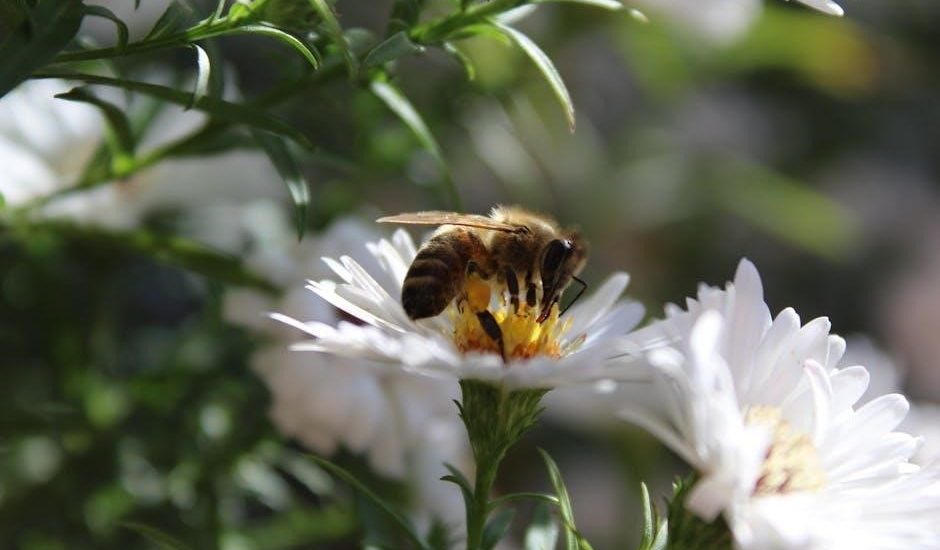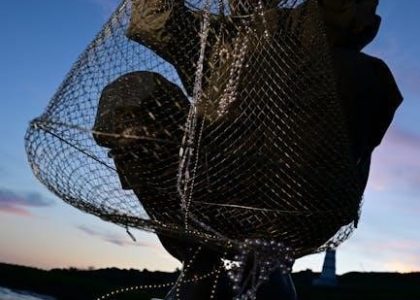The Daisy Flower Garden Journey is a fun, interactive program designed for Girl Scout Daisies, focusing on gardening, environmental stewardship, and the Girl Scout Law. Through hands-on activities, girls learn about planting, composting, and the importance of pollinators while developing leadership skills and teamwork. This journey encourages young participants to connect with nature, explore their creativity, and make a positive impact in their communities.
Overview of the Daisy Flower Garden Journey
The Daisy Flower Garden Journey is a engaging experience designed for Girl Scout Daisies, combining fun, learning, and community service. This journey introduces young girls to the world of gardening, environmental stewardship, and the Girl Scout Law. Through hands-on activities, girls learn about planting, maintaining mini gardens, and understanding the importance of elements like composting and pollinators. The journey is structured to foster teamwork, creativity, and leadership skills while encouraging girls to connect with nature and their communities. Activities include setting up mini gardens, participating in field trips to botanical gardens or flower shops, and engaging with guest speakers like florists or beekeepers. The journey also emphasizes taking action through clean-up initiatives and community service projects. With its blend of education and adventure, the Daisy Flower Garden Journey helps girls grow into confident, caring, and environmentally conscious individuals.
Purpose of the Daisy Flower Garden Journey
The Daisy Flower Garden Journey is designed to introduce young Girl Scouts to the fundamentals of gardening, environmental stewardship, and community engagement. Its primary purpose is to help girls develop essential skills such as leadership, teamwork, and responsibility while fostering a deep connection with nature. Through hands-on activities, girls learn about the Girl Scout Law, the life cycle of plants, and the importance of pollinators like bees. The journey also aims to encourage creativity, curiosity, and a sense of accomplishment as girls work together to create and maintain their own mini gardens. By participating in field trips, inviting guest speakers, and taking part in community service projects, girls gain a broader understanding of their role in protecting the environment and making a positive impact. The ultimate goal is to empower young girls to become confident, caring, and environmentally conscious individuals who embody the values of Girl Scouting.
Target Audience: Girl Scout Daisies
The Daisy Flower Garden Journey is specifically designed for Girl Scout Daisies, typically kindergarteners and first-graders, who are just beginning their Girl Scout experience. This program is tailored to their developmental stage, focusing on fun, hands-on activities that foster curiosity, creativity, and a sense of responsibility. The journey introduces young girls to the Girl Scout Law and the importance of caring for the environment through gardening and outdoor exploration. Activities such as planting mini gardens, learning about composting, and interacting with nature are designed to be engaging and age-appropriate. The program also encourages teamwork and leadership skills, as girls work together on projects and take ownership of their learning. With the guidance of adult leaders, Girl Scout Daisies are empowered to grow into confident, compassionate, and environmentally conscious individuals who embody the values of Girl Scouting. This journey serves as a foundational experience, setting the stage for future adventures and personal growth.
Key Components of the Daisy Flower Garden Journey
The journey includes the Watering Can Award, mini garden setup, composting, and the role of ladybugs, teaching girls essential gardening skills and environmental stewardship while fostering teamwork and responsibility.
The Watering Can Award
The Watering Can Award is a key component of the Daisy Flower Garden Journey, designed to help girls develop essential gardening skills and a sense of responsibility. To earn this award, participants must demonstrate their understanding of the Girl Scout Law and its application in a gardening context. The award focuses on watering, nurturing, and observing plant growth, teaching girls the importance of patience and care. Through this process, girls learn about the life cycle of plants and the role they play in maintaining a healthy environment. The Watering Can Award also encourages teamwork, as girls work together to tend to their mini gardens and share their experiences. This hands-on approach fosters a deeper connection to nature and promotes leadership skills. By completing the requirements, girls not only earn the award but also gain a lasting appreciation for gardening and environmental stewardship.
Mini Garden Setup and Maintenance
Setting up and maintaining a mini garden is a central activity in the Daisy Flower Garden Journey, teaching girls about responsibility and the joy of nurturing plants. To begin, girls select a small area or container, prepare the soil, and plant seeds or seedlings. Regular watering and observation are crucial, with girls checking their plants at each meeting to ensure proper growth. The adult guide provides detailed instructions and tips for successful gardening, emphasizing the importance of teamwork and patience. As the garden progresses, girls learn to identify and address common challenges, such as pests or nutrient deficiencies. Maintenance involves weeding, fertilizing, and ensuring adequate sunlight and water. This hands-on experience helps girls connect with nature, understand the life cycle of plants, and develop a sense of accomplishment as they watch their garden flourish. The mini garden serves as a vibrant reminder of the Girl Scout Law in action, fostering care for the environment and pride in their contributions.
Importance of Composting
Composting is a vital part of the Daisy Flower Garden Journey, teaching girls the value of reducing waste and creating nutrient-rich soil for their mini gardens. By collecting organic materials like food scraps, leaves, and flower trimmings, girls learn how decomposition works and how compost enriches the soil. This activity emphasizes sustainability and the importance of using natural resources wisely. Girls discover how composting helps plants grow strong and healthy, reducing the need for chemical fertilizers. Through hands-on participation, they understand the role they play in caring for the environment. Composting aligns with the Girl Scout Law, particularly “use resources wisely” and “make the world a better place.” This practical skill fosters a deeper appreciation for nature and encourages girls to adopt eco-friendly habits in their daily lives. The composting process becomes a meaningful way to contribute to their mini garden’s success and the health of their community.
Role of Ladybugs in Flower Gardens
Ladybugs play a vital role in flower gardens as natural predators of harmful insects like aphids, helping to protect plants and maintain a balanced ecosystem. In the Daisy Flower Garden Journey, girls learn about the importance of ladybugs and other beneficial insects. Ladybugs are attracted to gardens with diverse flowers and can be encouraged by planting a variety of blooms. Their presence reduces the need for pesticides, promoting a healthier environment for plants to thrive. Girls discover how ladybugs contribute to the garden’s ecosystem and how they can create ladybug-friendly habitats. This learning experience aligns with the Girl Scout Law, emphasizing care for the environment and responsible stewardship. By understanding the role of ladybugs, participants gain insights into the interconnectedness of nature and the value of biodiversity in their mini gardens. This knowledge empowers them to make environmentally conscious decisions and appreciate the small but significant contributions of these helpful insects.
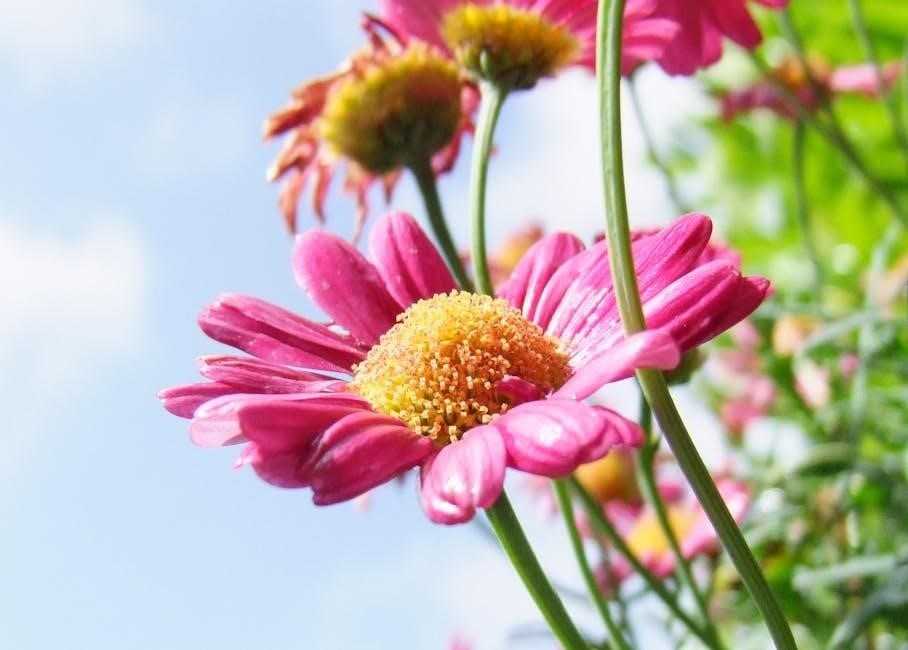
Educational Elements of the Journey
The Daisy Flower Garden Journey teaches girls about the Girl Scout Law, plant life cycles, pollinators like bees, and stories about flowers and animals, fostering environmental awareness and character development through hands-on learning.
Learning About the Girl Scout Law
The Daisy Flower Garden Journey introduces girls to the Girl Scout Law, teaching them to be honest, fair, friendly, and responsible. This foundational element integrates storytelling and activities to help Daisies understand and embody these values. Through the journey, girls learn how the Girl Scout Law applies to their interactions with others, their community, and the environment. Activities are designed to promote teamwork, empathy, and respect, fostering a strong moral compass. The journey also connects these values to real-world actions, such as caring for gardens and helping others. By exploring the Girl Scout Law, participants develop essential life skills and a sense of responsibility that extends beyond the garden. This educational focus ensures that girls not only grow flowers but also grow into compassionate and ethical leaders. The journey’s engaging approach makes learning the Girl Scout Law fun and meaningful for young participants.
Understanding the Life Cycle of Plants
The Daisy Flower Garden Journey teaches girls about the life cycle of plants, from seed germination to blooming and decay. Through hands-on activities like planting and maintaining mini gardens, Daisies observe how seeds grow into flowers, emphasizing the importance of care and patience. This process helps girls understand the natural progression of plant life, including photosynthesis, growth stages, and the role of water, sunlight, and nutrients. By tending to their gardens, girls learn responsibility and the interconnectedness of living things. The journey also introduces the concept of composting, showing how plant waste can nourish new growth. This educational element fosters curiosity and appreciation for nature, encouraging girls to explore and protect the environment. The life cycle of plants serves as a metaphor for growth and renewal, inspiring girls to reflect on their own development and the world around them. This knowledge becomes a foundation for future environmental stewardship and outdoor education.
Importance of Pollinators like Bees
Pollinators, such as bees, play a vital role in the Daisy Flower Garden Journey by highlighting their essential contribution to plant growth and ecosystem health. Bees transfer pollen between flowers, enabling fertilization and seed production, which is crucial for the survival of plants and food sources. Girls learn how bees and other pollinators, like butterflies and ladybugs, support biodiversity and sustain gardens. This knowledge encourages girls to appreciate the interconnectedness of nature and take action to protect pollinators. Activities such as planting pollinator-friendly flowers and creating bee-friendly habitats teach girls about environmental stewardship. Understanding the importance of bees aligns with the Girl Scout Law, promoting respect for the natural world. By fostering this awareness, the journey inspires girls to become advocates for pollinators and their critical role in maintaining healthy ecosystems. This educational element emphasizes the value of conservation and sustainability, encouraging lifelong care for the environment.
Exploring the Five Flowers, Four Stories, and Three Cheers for Animals
The Daisy Flower Garden Journey introduces girls to the “Five Flowers, Four Stories, and Three Cheers for Animals,” a engaging way to explore nature and Girl Scout values. The five flowers represent different aspects of gardening and growth, while the four stories share tales of friendship, teamwork, and responsibility. The three cheers for animals highlight the importance of caring for creatures and understanding their roles in the ecosystem. Through these elements, girls learn about biodiversity, conservation, and the interconnectedness of all living things. Activities include identifying flowers, reading stories, and participating in animal-themed games. This component fosters creativity, empathy, and a deeper connection to the natural world, aligning with the Girl Scout Law and promoting environmental stewardship. By exploring these themes, girls develop a sense of wonder and responsibility, encouraging them to take action in protecting plants and animals in their communities. This section is designed to inspire curiosity and compassion in young participants.
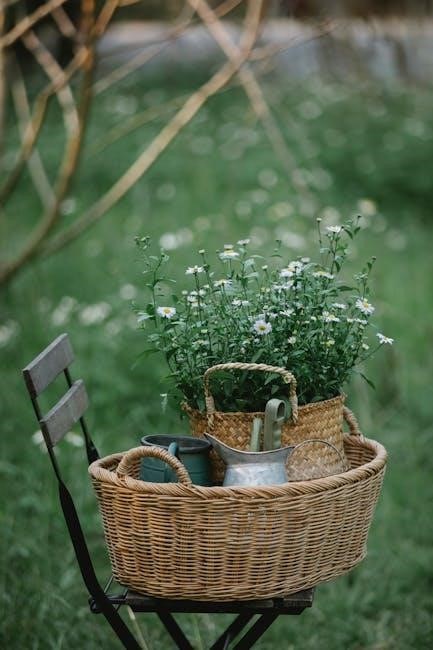
Activities and Projects
Interactive activities include planting mini gardens, field trips to community gardens, and inviting guest speakers like florists. Projects involve take-action initiatives, such as clean-up efforts and community service, fostering teamwork and responsibility.
Planting a Mini Garden
Planting a mini garden is a central activity in the Daisy Flower Garden Journey, designed to teach girls about responsibility and the joys of nurturing plants. Girls begin by preparing the soil, selecting flowers or herbs, and planting seeds or seedlings. This hands-on experience helps them understand the life cycle of plants and the importance of care and patience. The mini garden is an ongoing project, with girls watering and maintaining it during each meeting. Leaders are encouraged to use tips from the adult guide, such as those found on page 39, to ensure success. This activity not only fosters a connection to nature but also reinforces the Girl Scout Law, particularly “use resources wisely” and “make the world a better place.” By tending to their gardens, girls learn teamwork, observe growth, and develop pride in their contributions to the environment.
Field Trip Ideas: Community Gardens, Flower Shops, and Botanical Gardens
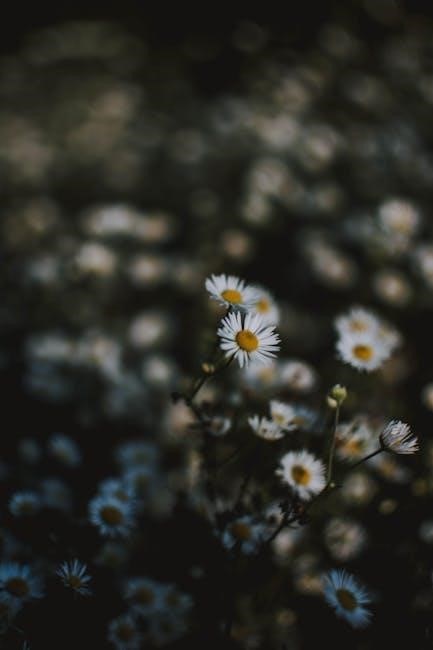
Field trips are a vital part of the Daisy Flower Garden Journey, offering girls hands-on learning experiences in real-world settings. Visiting a community garden introduces girls to sustainable gardening practices and teamwork. Exploring a flower shop teaches them about different types of flowers, their care, and floral arrangements. Botanical gardens provide opportunities to observe a wide variety of plants and learn about their roles in ecosystems. These trips encourage girls to connect with nature and understand the importance of pollinators and plant diversity. Leaders can also incorporate activities like picking up trash during walks or inviting guest speakers, such as gardeners or florists, to share their expertise. These experiences not only deepen the girls’ appreciation for gardening but also align with the Girl Scout Law, fostering a sense of responsibility and stewardship for the environment. Field trips make learning fun and memorable, while inspiring girls to take action in their own communities.
Inviting Guest Speakers: Florists, Gardeners, and Beekeepers
Inviting guest speakers like florists, gardeners, and beekeepers enriches the Daisy Flower Garden Journey by providing expert insights and real-world perspectives. Florists can demonstrate flower care, arrangement techniques, and share the importance of flowers in celebrations. Gardeners offer practical advice on planting, maintaining gardens, and using eco-friendly practices. Beekeepers educate girls about pollinators, the role of bees in plant reproduction, and the impact of environmental changes on bee populations. These speakers inspire curiosity and passion for nature, fostering a deeper understanding of the Girl Scout Law. Their involvement also encourages girls to explore future careers in horticulture, environmental science, and sustainability. Guest speakers add variety and engagement to sessions, creating memorable learning experiences that align with the journey’s goals of leadership, stewardship, and community service. Their contributions help girls develop a lifelong appreciation for gardening and environmental conservation.
Take Action Projects: Clean-Up Initiatives and Community Service
Take Action projects are a vital part of the Daisy Flower Garden Journey, encouraging girls to make a positive impact in their communities. Clean-up initiatives, such as organizing park or garden cleanups, teach girls about responsibility and stewardship. These activities also promote environmental awareness and the importance of preserving natural spaces. Community service projects, like planting flowers in public areas or creating gardens for others to enjoy, foster a sense of giving back. Girls learn to collaborate, lead, and solve problems while contributing to the beauty and health of their neighborhoods. These efforts align with the Girl Scout Law, emphasizing the value of caring for others and the environment. By participating in Take Action projects, Daisies develop leadership skills and a deeper understanding of how their actions can create lasting change. This hands-on approach helps girls grow into compassionate and engaged community members.
Resources and Guides
The Daisy Flower Garden Journey provides an Adult Guide with detailed activity plans, helpful tips, and resources for leaders to support girls throughout the program. Additional materials include session outlines and gardening tips.
Adult Guide for the Daisy Flower Garden Journey
The Adult Guide for the Daisy Flower Garden Journey is an essential resource for troop leaders, offering step-by-step instructions for each session. It includes activity plans, tips for facilitating discussions, and ideas for engaging girls in gardening and environmental activities. The guide also provides background information on key topics such as composting, pollinators, and the Girl Scout Law, ensuring leaders are well-prepared. Additionally, it offers suggestions for adapting activities to meet the needs of different learners and managing group dynamics. The guide emphasizes the importance of fostering a supportive and inclusive environment, allowing girls to explore their creativity and develop important life skills. By following the guide, adults can help girls navigate the journey smoothly and make meaningful connections to the program’s themes. The guide is a comprehensive tool that supports both new and experienced leaders in delivering a successful and impactful experience for their troops.
Helpful Tips for Adults Leading the Journey
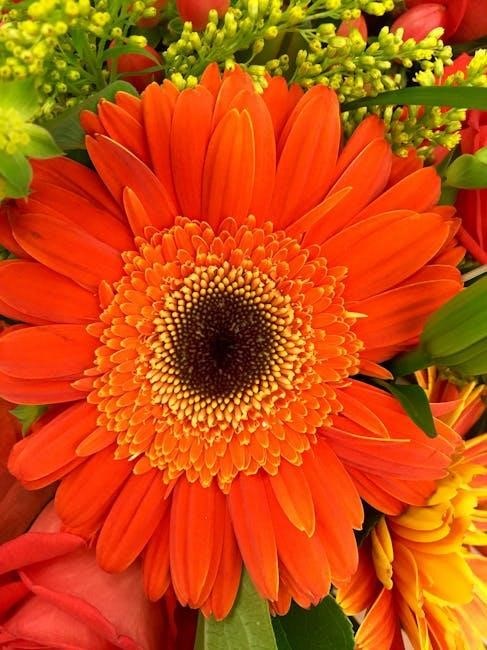
Leading the Daisy Flower Garden Journey requires patience, creativity, and preparation. Encourage girls to take ownership of activities, fostering a girl-led environment. Be flexible and adapt activities to suit the group’s energy and interests. Use the Adult Guide as a roadmap but feel free to add personal touches. Emphasize the Girl Scout Law throughout discussions and projects to reinforce its importance. Provide clear instructions and demonstrate tasks, especially for younger or less experienced participants. Encourage questions and curiosity, creating a safe space for learning. Celebrate small successes to build confidence and teamwork. Stay organized with materials and schedules to ensure smooth sessions. Involve parents or volunteers when possible to provide additional support. Finally, model the behaviors and values you want the girls to adopt, such as kindness, responsibility, and respect for nature.
Activity Plans for Sessions
The Daisy Flower Garden Journey is structured with engaging activity plans to ensure a fun and educational experience for Girl Scout Daisies. Each session is designed to align with specific learning objectives, such as understanding gardening basics, exploring the Girl Scout Law, and fostering teamwork. Activities include planting mini gardens, creating compost, and observing ladybugs in action. The Adult Guide provides detailed instructions for each session, including timelines, materials needed, and discussion prompts. Hands-on projects like flower planting and nature walks encourage girls to connect with the environment. Educational components, such as learning about pollinators and the life cycle of plants, are woven into each activity. Reflection and celebration are key parts of every session, allowing girls to share their experiences and accomplishments. The guide also offers flexibility, allowing leaders to adapt activities based on the group’s interests and pace. This structured yet adaptable approach ensures a meaningful and enjoyable journey for all participants.
The Daisy Flower Garden Journey concludes with reflections on growth, learning, and community impact. Girls gain essential skills, a deeper connection to nature, and inspiration to continue exploring gardening and Girl Scout values.
Reflecting on the Daisy Flower Garden Journey
Reflecting on the Daisy Flower Garden Journey allows participants to celebrate their accomplishments and growth. Girls can share what they learned about gardening, the Girl Scout Law, and teamwork. They can discuss their favorite activities, such as planting mini gardens or meeting guest speakers, and how these experiences shaped their understanding of nature and community service. Reflection also provides an opportunity to think about challenges faced and how they were overcome, fostering resilience and problem-solving skills. By looking back on their journey, girls can appreciate how their efforts contributed to creating beauty and positive change in their surroundings. This reflection strengthens their connection to the Girl Scout values and inspires them to continue making a difference. It’s a meaningful way to wrap up the journey while reinforcing the lessons learned and memories made along the way.
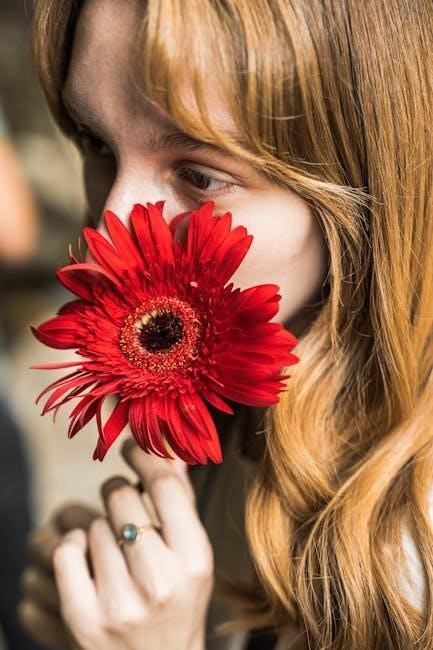
Impact of the Journey on Participants
The Daisy Flower Garden Journey has a profound impact on participants, fostering personal growth, teamwork, and a deeper connection to nature. Girls develop essential skills in gardening, composting, and environmental stewardship, while learning the Girl Scout Law and its values. The journey encourages creativity, curiosity, and responsibility as they care for their mini gardens and explore the role of pollinators. Participants gain confidence through hands-on activities and teamwork, building friendships and leadership abilities. The journey also instills a sense of community by engaging in Take Action projects, such as clean-up initiatives, which teach the importance of giving back. By interacting with guest speakers and visiting gardens, girls broaden their horizons and develop an appreciation for the natural world. Overall, the journey empowers young Girl Scouts to become compassionate, resourceful, and environmentally conscious individuals, preparing them to make a positive difference in their communities.
Encouraging Continued Exploration of Gardening and Girl Scout Values
The Daisy Flower Garden Journey is designed to inspire girls to continue exploring gardening and Girl Scout values beyond the program. By fostering a love for nature and hands-on learning, the journey equips participants with the confidence and skills to pursue gardening as a lifelong hobby. Girls are encouraged to apply the Girl Scout Law in their daily lives, promoting kindness, responsibility, and teamwork. The program also emphasizes the importance of environmental stewardship, encouraging girls to care for their communities and the planet. Through activities like planting mini gardens and learning about pollinators, girls develop a deeper appreciation for the natural world. The journey’s focus on Take Action projects further motivates girls to address real-world issues, fostering a sense of purpose and leadership. With the support of adult guides and resources, girls are empowered to continue their gardening and Girl Scout adventures, growing into compassionate and resourceful individuals.

